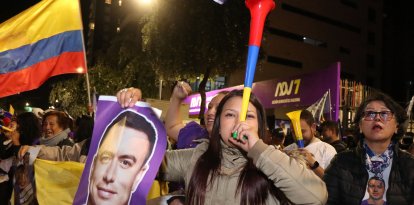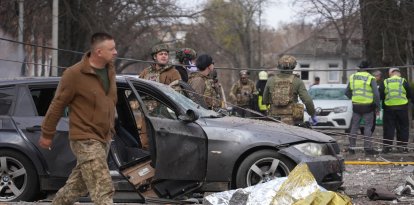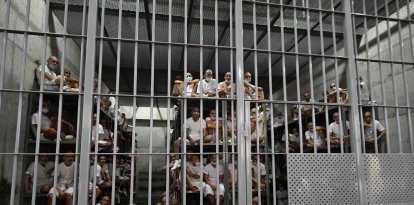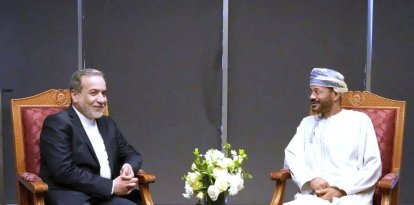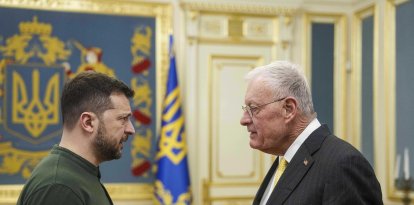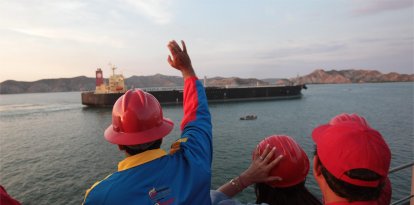With the support of the US and Israel, the Kurds continue to fight for their autonomy in Syria after the fall of al-Assad
During the civil war, the Kurdish militias, called the Syrian Democratic Forces, fought the al-Assad regime, but also various pro-Turkish jihadist groups. However, the fighting has not ceased, and their goal of establishing an official autonomous administration in the northwest of the country remains intact.

Syrian Democratic Forces fighters.
The fall of Bashar al-Assad's regime in Syria has not stopped the fighting, as different factions with opposing interests continue to fight in that country.
Kurdish militias, known as the Syrian Democratic Forces (SDF), reached a ceasefire Tuesday with pro-Turkish rebels, against whom they were fighting in the Manbij region of northeastern Syria.
The agreement was brokered by the United States, a strong ally of the SDF, a group they have supported to fight the terrorist group Islamic State (ISIS).
Fighting between the SDF and pro-Turkish groups is taking place as Turkey considers this Kurdish force an extension of the Kurdistan Workers' Party (PKK, by its Kurdish-language acronym), which Ankara considers a terrorist organization.
The Turks have carried out a large number of attacks against SDF positions in Syria and Iraq. These offensives increased after an attack attributed to the PKK in front of the Turkish Defense Industries headquarters in Ankara, in which five people were killed.
Israeli newspaper Ynet indicated that the Kurds and the Druze in Syria maintain ties with Israel in order to prevent extremist Islamist groups from taking control of the entire country.
Recently, Israeli Foreign Minister Gideon Sa'ar affirmed at a press conference for foreign journalists that his country maintains contact with the Kurds and called for ensuring the security of this and other minorities, such as the Druze, Christians and Alawite Muslims, a minority Shiite group to which former Syrian President al-Assad belongs.
The Kurds' uncertainty
During the civil war, the Kurds have fought ISIS and various groups linked to Al-Qaeda. One of them, Hayat Tahrir al-Sham (HTS) led the offensives that resulted in the overthrow of the al-Assad dynasty government after 54 years in power, which is why it currently controls most of Syrian territory.
This situation has generated uncertainty for the Kurds, since they do not know how the new leadership, which has tried to show a more moderate image, will act.
Kurdish fighting in southwestern Syria
Ynet added that the SDF has also been engaged in sporadic fighting with Arab tribes in Syria's southwestern Deir ez-Zor province due to conflicts over territory and strategic resources, such as oil and water.
Russia and Iran, the big losers
The big losers after the fall of the al-Assad regime, besides the former Syrian president himself, are Russia and Iran, his biggest allies. Moscow has lost part of its influence in the Middle East, while Tehran will no longer be able to use Syrian territory to act against Israel, either by attacking from there through pro-Iranian militias or by sending weapons to the Lebanese terrorist organization Hezbollah.
Turkey, for its part, claims the fall as a victory, as it has supported some jihadist organizations that were fighting against al-Assad.
Kurds' goal of establishing an official autonomous administration in the northwest of the country remains intact
According to the Israeli outlet's analysis, the establishment of an official autonomous administration in northwestern Syria by the SDF will depend on international negotiations and the balance of power in the region. The idea of unifying the country remains distant, especially as Turkey remains determined to prevent the Kurds from gaining autonomy near the Turkish border.
Meanwhile, the SDF announced Thursday that the self-proclaimed Autonomous Administration of Northern and Eastern Syria, a de facto Kurdish-controlled region, raised the "flag of independence" in its institutions to affirm "the unity of Syria and its national identity."
RECOMMENDATION

